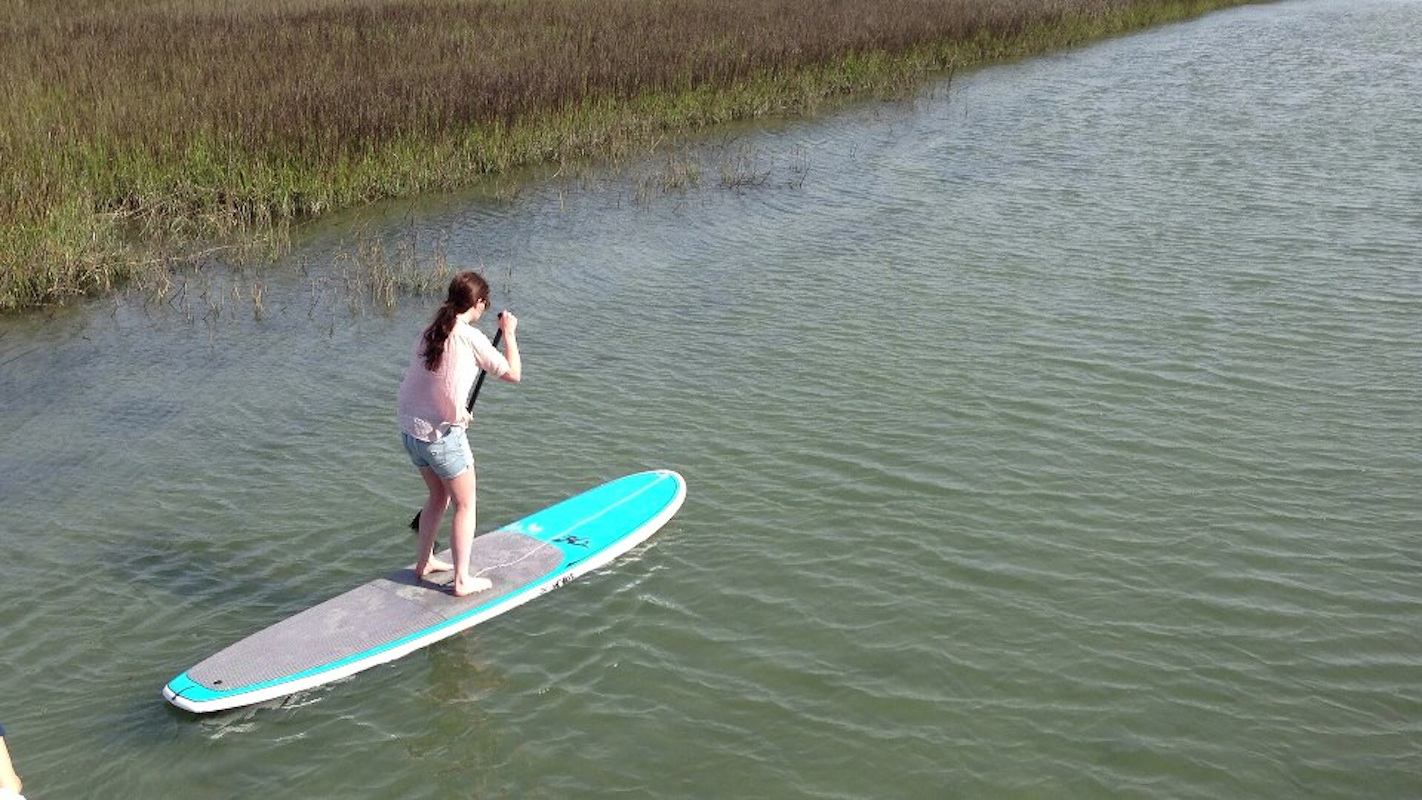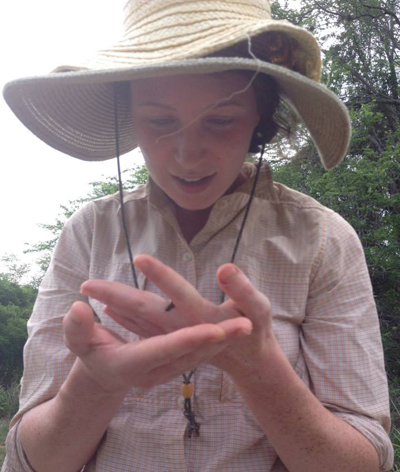This Is What Science Looks Like at NC State: Emily Meineke

Editor’s note: This post was written by Emily Meineke, an entomology Ph.D. student at NC State. The post is an entry in an ongoing series that we hope will highlight the diversity of researchers in science, technology, engineering and mathematics. The series is inspired by the This Is What A Scientist Looks Like site.
There are two camps of scientists – those of us who understand where our interests came from and those of us who are just as surprised about our trajectories as everyone else. I’m in the latter group.

My mom is a nurse practitioner, and my dads are both nurses, so I always thought I would end up working in a hospital, maybe as a physical therapist, because they get to work in what was (in my younger brain) a jungle gym. I also thought at one point I might be a nutritionist, or a writer, or an astronaut.
But somehow I ended up committing my brain and my time to insects. They fascinate me. They buzz around us and engineer the world, mostly beyond our notice unless they make us itchy or sick. But insects do so much more for and against us. They put food on our tables. They till the soil and change the microbes that live in it. They busily take advantage of the environments we engineer for ourselves and make them their own.
But what is most interesting to me about insects is what we don’t know, which is pretty much everything. Most animals are unknown insects. Also included in the “what we don’t know” category are most of the ways in which insects affect us. I love thinking about how unnoticeable, tiny animals can affect our health and well-being through sheer force of number.
That being said, I didn’t always know science was for me. Initially, I saw the freedom to ask and answer questions as daunting: What if I ask the wrong questions? What if I ask the right questions and answer them inadequately? The beginning of a career in science (or anything) can be full of uncertainty, and it took a long time for me to allow excitement to take over fear of the unknown.
Now I’m toward the end of my dissertation, in which I’ve studied how warming in the city caused by sidewalks (the “urban heat island effect”) changes pest insects on oak trees on the streets of Raleigh. I found that pest insects benefit from urban warming, which is bad for trees, and probably us. During my studies, I have also made time for things I love most. I cook, run, read, travel, and eat. Eating is my favorite thing in the world, next to insects.
- Categories:


